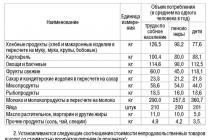General history. History of the New Age. Grade 8 Burin Sergey Nikolaevich
§ 27. The world of man of industrial civilization
Changes in the material world
At the end of the 18th century, at the dawn of industrial civilization, the industrial revolution that initiated it had many opponents. Some scientists even argued that rapid economic growth would cause a conflict between man and nature: the land would be depleted, mineral reserves would run out, there would be fewer livestock, fish, and birds. After all, at that time the land seemed the only means of obtaining food and raw materials, and coal and wood were considered the main sources of energy, the resources of which were huge, but by no means unlimited.
However, in the XIX century. humanity has found new opportunities, which, of course, no one could have foreseen at the beginning of the industrial revolution. In particular, new sources of energy and more economical ways of using it were discovered. By the end of the XIX century. the value increases sharply oil industry. Another new energy base was created by the development of electric energy. The internal combustion engine was also invented, which later made a real revolution in transport, agriculture and military equipment. Electrochemistry and electrometallurgy arose, urban transport also changed - horse-drawn carriages were replaced by trams, and then cars and buses.
American inventor Thomas Edison
In the XIX - early XX century. many discoveries and inventions were made that completely changed the face of civilization: the telegraph, electric lighting, radio, telephone, aeronautics, automobiles, cinema, etc. The work and life of man were completely transformed, which was associated with the active introduction of machines into production. True, it was sometimes said that the mechanization of labor leads to the transformation of the worker into an appendage of the machine, an impersonal being, a "cog". But the time of medieval craftsmen, who lovingly and leisurely created piece products bearing the stamp of the “author’s” individuality, was irrevocably a thing of the past. The advantages that technical and scientific progress gave to mankind became more and more obvious from year to year.
What led to the rapid development of scientific and technological progress? How did it affect the environment and human society?
An explosion of social mobility
In the XVII-XVIII centuries. the mobility of society has increased significantly, i.e., people have the opportunity to move to other cities and countries, as well as significantly change their social status. Social mobility has become one of the most important signs of industrial civilization. It, in particular, made possible the emergence in North America of a completely new state - the United States. To a certain extent, this can be said about countries Latin America who gained independence in the first decades of the 19th century. After all, their population also largely consisted of the descendants of European conquerors (Spaniards and Portuguese) and blacks forcibly transported from Africa.
Thus, European society already in the XVII-XVIII centuries. lost its former staticness (i.e., immobility), literally coming into motion. But in the 19th century there is a real explosion of social mobility. Its content is also changing: mobility becomes less spontaneous, that is, it ceases to depend on many random circumstances. So, in the XVII century. many Protestants would probably prefer to remain in their European homeland if they did not suffer religious persecution there. And the Negroes, masses exported from Africa in the holds of ships, were not asked at all if they wanted to go to America unknown to them.
The main flow of immigrants in the XIX - early XX century, as before, was sent to the United States. Between 1820 and the outbreak of the First World War, that is, in 94 years, about 32 million people arrived in the United States (mainly from Europe). Among them were the British and French, Germans and Italians, by the end of the 19th century. there has been a marked increase in the influx of immigrants from the South and of Eastern Europe, including from Russia. Many Europeans also moved to the colonies - to Algeria and India, Canada and Australia, etc. And in southern Africa, Boer republics arose with a significant white population. White colonists willingly moved there even after the conquest of these republics by Great Britain.

At the telephone exchange
grew significantly in the 19th century. social mobility and among those who continued to seek happiness in their homeland. The final elimination of class restrictions, the expansion and strengthening of the circle of bourgeois-democratic freedoms, the not very rapid but stable rise in the standard of living created favorable conditions under which energetic and enterprising people could fundamentally change their property and social status. Of course, it was much more difficult for a worker or peasant to get to the top of society than for those who were practically guaranteed this by kinship or solid capital.
Why did the explosion of social mobility take place in the 19th century? What changes in the economy and society did it lead to?
Changes in people's minds
Serious political and economic changes in the life of society that occurred by the beginning of the 20th century could not but affect the consciousness of a person of the industrial era. He began to understand more and more clearly his responsibility not only for his own life, but also for the fate of society. Development of transport and various systems communication contributed to the perception of the world by man as a single organism.
This was also helped by the constant expansion and deepening of the flow of information. By the beginning of the XX century. the broad masses of the population could receive information about events of interest to them (for example, the course of the Anglo-Boer War or the results of the presidential elections in the United States) almost simultaneously with eyewitnesses of these events. Newspaper owners hurried as quickly as possible, ahead of competitors, to convey all the important news to their readers.
Statue of Liberty in New York. France's gift to the American people. Sculptor F. Bartholdi
Along with the expansion of the horizons of a person of the era of industrial civilization, the quality of his consciousness also changed: it became more flexible, more sensitive to "foreign" points of view, positions, theories, about which until about the middle of the 19th century. knew only a very narrow circle of people. The former indifference of a significant part of society to the most important phenomena of life (politics, ideology, etc.) created a kind of gulf between the bulk of the population and those on whom the fate of tens, and sometimes hundreds of millions of people depended to one degree or another. And this often allowed the authorities of states to act (and thinkers to create) contrary to the interests of society.
During the 19th century this position has changed over time. The state, step by step, seemed to transfer its powers to society, which increasingly became civil, that is, capable of independent activity. Of course, this required a sufficiently high maturity and consciousness of society, its readiness to take on part of the responsibility that previously lay with the state and professional politicians.
Of course, in every country, in every society, this process developed differently. Where democratic rights and freedoms appeared and were strengthened earlier, the population reacted more quickly to changes in a particular country and in the world as a whole. In those states where the rights and freedoms of the people were limited or they were not given due attention, a split arose between the authorities and a significant part of society. The level of public consciousness in such countries, as a rule, was not sufficiently developed, it was often exposed to primitive radical propaganda.
Which countries in the 19th and early 20th centuries What are the most favorable conditions for the emergence of a mature civil society? What was it about?
New in the world of ideas
The spiritual world of man in the conditions of industrial civilization during the 19th century. became immeasurably richer. The changes in people's minds that we just talked about made them want to get more information and participate more actively in society. These changes also led to the fact that more and more people sought to join the new philosophical and scientific ideas, to compare them with their own views, which became more mature and meaningful. This was facilitated by educational reforms carried out in many countries.
At the same time, the very ideas, theories and teachings became clearer and more accessible to people. Contemporaries were literally shocked by the works of the English naturalist Charles Darvin (1809-1882): after all, it followed from them that man was not at all created by God in his own image and likeness. Darwin, whose theory continues to be debated to this day, argued that man was created by the forces of nature and descended from a highly developed animal - a monkey. Of course, many contemporaries accepted the new theory with hostility: who would want to recognize a furry, hunched creature as their “relative”!

Charles Darwin
Even greater rejection was caused by the works of Sigmund Freud (1856–1939). This Austrian psychiatrist created the theory of psychoanalysis, which allows you to look into the most hidden corners of the human soul. To the indignation of many, Freud saw there primitive passions that again reminded us of the kinship of man with the animal world. Based on numerous experiments, Freud showed that in the depths of the human mind is hidden the subconscious - a "boiling cauldron of instincts" - which obeys only the desire for simple pleasures. And so in the human mind there is a constant struggle between the rational principle and animal instincts.
The studies of Darwin, Freud and other scientists, it would seem, debunked all previous values. But they helped people rethink familiar concepts, take a critical look at their passions and instincts in order to restrain and control them. At the turn of the XIX-XX centuries. this became especially important, since changes in human consciousness did not always turn out to be beneficial for society. Disbelief in reason and progress, selfishness, and even nihilism (that is, the denial of everything, all cultural, moral and other values) have become quite widespread.
Some thinkers in one form or another made it clear that by the beginning of the 20th century. European civilization, having achieved the utmost success, experienced a serious illness, just as death still occurs at the end of even the brightest life. It was this picture that the prominent German philosopher O'swald Spengler (1880-1936) painted in his main work "The Decline of Europe". But time has shown that the "sunset" was only apparent. Crisis phenomena in politics and economics, in the mood of society did not become decisive for its development and, on the whole, were successfully overcome.
Summing up
Significant changes in the material and spiritual world of man in the era of industrial civilization gradually changed his consciousness. A mature civil society arose in a number of countries, which, in alliance with the state, sought to promote progress and increase the well-being of the population. Maturity and growing Civil responsibility societies helped to overcome various kinds of crises. And yet the most serious political crisis has led mankind to a world war.
one*. What scientific discoveries and inventions that appeared by the beginning of the 20th century ... posed a threat to nature, man and society? Is it possible to avoid negative consequences by banning "harmful" scientific research?
2. Which countries have benefited from mass immigration? How did she harm? Why?
3. What was the advantage of countries in which a civil society has developed? Why were they able to advance faster along the path of progress?
4. What exactly gave rise to a number of thinkers at the turn of the XIX-XX centuries. fears of a severe crisis of civilization? Were there objective grounds for such fears?
one*. By the end of the XIX century. increased emigration from Russia to the United States. Based on what you know about the US and Russia late XIX- early 20th century (from a textbook, other literature, films, etc.), make up a short story “on behalf of” a Russian emigrant. You can choose his profession and social position yourself. In addition to what you want to “tell”, be sure to briefly highlight the following questions: reasons for leaving Russia; the goals that the emigrant wanted to achieve; his first impressions and reviews of the USA.
2. German philosopher of the XIX century. F. Nietzsche wrote in his book “The Anti-Christian”: “... more power, more power! Not peace, but war, not virtue, but valor... Let the weak and ugly perish - this is the first commandment of our philanthropy! We need to help them die."
Express your opinion on these words. Representatives of what areas of social thought of the XIX century. supported these ideas, and which ones would you condemn?
This text is an introductory piece. From the book General History. History of the New Age. 7th grade author Burin Sergey NikolaevichChapter 6 At the dawn of industrial civilization “By the end of the 18th century. early capitalism and its industrial organizations, into which the new technology first victoriously penetrated, gave the first impetus to the growth of society. A new social class emerged, outnumbering and outnumbering
From the book History of Russia XX - early XXI century author Milov Leonid Vasilievich§ 3. Formation of industrial infrastructure in Russia. Formation of the system of monopoly capitalism Transport. Successful operation Agriculture and industry under capitalism is impossible without a developed industrial infrastructure,
authorSection 3 The birth of an industrial civilization and the contradictions of world development (XVIII - the first half
From the book History of World Civilizations author Fortunatov Vladimir Valentinovich§ 2. The beginning of the industrial revolution With the onset of the New Age, the beginning of the formation of an industrial civilization, which is usually opposed to traditional civilization, is associated. The very use of the characteristics "civilization", "civilized",
From the book History of Russia. 20th century author Bokhanov Alexander Nikolaevich§ 4. People and power during the industrial revolution Social relations. In the late 20s - 30s. The Soviet political leadership faced an extremely difficult situation. On the one hand, accelerated industrial growth was a vital ("strategic") necessity.
From the book Creating the Foundation of a Socialist Economy in the USSR (1926-1932) author Team of authors4. Creation industrial structure economy of the USSR As a result of socialist transformations and rapid industrial growth during the period of building the foundation of the socialist National economy USSR since
From the book History of Sweden the author MELIN and others JanVI. The agrarians in power and the era of the industrial revolution (1867-1905) The period of domination of the agrarians: problems of defense and taxes (1867-1885) / 197 / Parliamentary reform was carried out by the efforts of the liberal middle class, but, ironically, political power in the new Riksdag
From the book Ancient Civilizations author Bongard-Levin Grigory MaksimovichThe flow of information coming from Africa about various forms of fossil man makes us take a fresh look at the process of isolating the most ancient human ancestors from the animal world and at the main stages of the formation of mankind. The clarification of many problems contributes to
From the book World History in Persons author Fortunatov Vladimir ValentinovichSection VII Epoch of Great Revolutions. New time. Becoming an industrial
From the book Nikita Khrushchev author Lavrinenko Natalya EvgenievnaHOW LITTLE MOSCOW BECAME INDUSTRIAL MOSCOW Khrushchev, unlike many of the then leaders, preferred not to stay in offices, but to work with people on the ground. Persistent and energetic, sociable and inquisitive, he seemed to "digest" in the human
From the book History of Modern Times. Crib author Alekseev Viktor Sergeevich39. THE BIRTH OF INDUSTRIAL CIVILIZATION By the middle of the XVIII century. in England, the totality of the changes taking place in society led to the birth of a new industrial civilization. Its name is associated with one of critical factors those years - industrialization. Under
From the book Russian Holocaust. The origins and stages of the demographic catastrophe in Russia author Matosov Mikhail Vasilievich2.3. THE EXPLOITATION OF MAN BY MAN IS THE MAIN DRIVING FORCE OF CIVILIZATION AND PROGRESS Among the different sources of energy, there is one that occupies a special position in the world of people - this is man himself. Possession and control of this source of energy is the goal of any
From the book General History. History of the New Age. 7th grade author Burin Sergey NikolaevichChapter 6 At the dawn of industrial civilization “By the end of the 18th century. early capitalism and its industrial organizations—into which the new technique triumphantly penetrated for the first time—gave the first impetus to the growth of society. A new social class emerged, outnumbering and outnumbering
From the book General History. History of the New Age. 8th grade author Burin Sergey Nikolaevich§ 27. The world of a man of an industrial civilization Changes in the material world The period that will be discussed is not so great for the history of mankind - only 125 years (1789-1914). There are even people who managed to live to such an age. And if you imagine a person
From the book Liberation of Russia. Political party program author Imenitov Evgeny LvovichMedicine: the harmony of man in nature, prevention, early diagnosis and treatment of man Speaking about medicine, we must start with the following. Medicine is not a collection and not a system of clinics and polyclinics, medical institutions and physicians, scientific institutes and
From the book Ford and Stalin: On how to live like a human author USSR Internal Predictorslide 2
Lesson plan.
1. Changes in the material world. 2. Explosion of social mobility. 3. Changes in the minds of people. 4. New in the world of ideas.
slide 3
Assignment for the lesson
Highlight character traits man of industrial civilization. What led to their formation?
slide 4
1. Changes in the material world.
Industrial Revolution in Japan. Engraving n.20 c. From 1789 to 1914, people's lives changed dramatically. In the 18th century, the industrial revolution had many opponents. Many scientists feared that it would lead to a break in the harmony of man and nature - natural resources would run out, bird and animal populations would sharply decrease, Many plant species will disappear. But in the 19th century. New sources of energy and economical forms of its use were discovered.
slide 5
Gas use. Poster from 1892. Coal was replaced by oil and electricity. Internal combustion engines appeared and automobiles were invented. New discoveries led to the advent of the telegraph, telephone, radio, cinema, aeronautics, and so on. The mechanization of production has dramatically increased labor productivity and the advantages that technological progress has brought have become obvious.
slide 6
2. Explosion of social mobility.
Schooner. Social mobility has become an important feature of industrial civilization. The population of the United States and a number of countries in Latin America largely consisted of European emigrants and former Negro slaves. The nature of mobility has changed dramatically - from forced (puritans), it has become voluntary. The bulk of the migrants still went to the United States.
Slide 7
"Look back." Caricature of attempts to ban emigration to the United States. Many emigrants went to Canada, India, Australia and other colonies. Internal mobility also increased. The population, deprived of class restrictions, quickly changed their occupation and status. the top quickly became a prominent figure in political and economic life.
Slide 8
3. Changes in the minds of people.
Telephone ladies. Lithography of 1904. Changes in the life of society also affected the consciousness of people. They began to understand their responsibility for the fate of the whole society. The development of transport and communications “shortened” distances. , people became more tolerant of different views. They began to actively participate in political life.
Slide 9
Become an American! Immigrant children swear allegiance to the United States. The state gradually began to transfer its powers to society, which became civil. In each country, this process developed differently. In countries with long parliamentary traditions, this process went faster - they eventually became democratic, and in others, between authoritarian power and society began conflicts. Here conditions arose for the spread of radical ideas.
Slide 10
4. New in the world of ideas.
Charles Darwin. The spiritual world of man became richer. People began to be more interested in philosophical concepts, tried to comprehend them, and the ideas themselves became more understandable, because their authors had a clear address orientation. C. Darwin shocked society by suggesting that man originated from a monkey, and was not created by God. His views were met with hostility by part of society.
slide 11
Sigmund Freud in 1921. No less criticized was the psychoanalyst Z. Freud, who claimed that behind any actions of people there are “lower instincts”, and in the minds of people there is a struggle between rational and animal principles. New discoveries in a number of cases led to the appearance of egoism, nihilism and disbelief in the power of reason and progress. O. Spengler even predicted the death of European civilization. But his prophecies did not come true.
View all slides
1 slide

2 slide
Lesson plan. 1. Changes in the material world. 2. Explosion of social mobility. 3. Changes in the minds of people. 4. New in the world of ideas.

3 slide
Task for the lesson Highlight the characteristic features of a person of an industrial civilization. What led to their formation?

4 slide
1. Changes in the material world. From 1789 to 1914, people's lives changed dramatically. In the 18th century, the industrial revolution had many opponents. Many scientists feared that it would lead to a break in the harmony of man and nature - natural resources would run out, bird and animal populations would sharply decrease, Many plant species will disappear. But in the 19th century. New sources of energy and economical forms of its use were discovered. Industrial Revolution in Japan. Engraving n.20 c.

5 slide
1. Changes in the material world. Coal was replaced by oil and electricity. Internal combustion engines appeared and automobiles were invented. New discoveries led to the advent of the telegraph, telephone, radio, cinema, aeronautics, and so on. The mechanization of production has dramatically increased labor productivity and the advantages that technological progress has brought have become obvious. Gas use. Poster from 1892.

6 slide
2. Explosion of social mobility. Social mobility has become an important feature of industrial civilization. The population of the United States and a number of countries in Latin America largely consisted of European emigrants and former Negro slaves. The nature of mobility has changed dramatically - from forced (puritans), it has become voluntary. The bulk of the migrants still went to the United States. Schooner.

7 slide
2. Explosion of social mobility. Many emigrants went to Canada, India, Australia and other colonies. Internal mobility also increased. The population, deprived of class restrictions, quickly changed their occupation and status. the top quickly became a prominent figure in political and economic life. "Look back." Caricature of attempts to ban emigration to the United States.

8 slide
3. Changes in the minds of people. Changes in the life of society also affected the consciousness of people. They began to understand their responsibility for the fate of the whole society. The development of transport and communications “shortened” distances. tolerant of different views. They began to actively participate in political life. Telephone ladies. Lithograph 1904

9 slide
3. Changes in the minds of people. The state gradually began to transfer its powers to society, which became civil. In each country, this process developed differently. In countries with long parliamentary traditions, this process went faster - they eventually became democratic, and in others, between authoritarian power and society began conflicts. Here conditions arose for the spread of radical ideas. Become an American! Immigrant children swear allegiance to the United States.
11 slide
4. New in the world of ideas. No less criticized was the psychoanalyst Z. Freud, who claimed that behind any actions of people there are “lower instincts”, and in the minds of people there is a struggle between rational and animal principles. New discoveries in a number of cases led to the appearance of egoism, nihilism and disbelief in the power of reason and progress. O. Spengler even predicted the death of European civilization. But his prophecies did not come true. Sigmund Freud in 1921
Summary of an open history lesson for grade 8.
The theme of the lesson is "Man of industrial civilization" (Grade 8).
Developed and conducted
teacher of history and social studies
second qualification category
GBOU secondary school No. 667 of Moscow
Apukhtina Natalya Sergeevna
educational- expand and deepen students' knowledge about the human world of industrial civilization, changes in the material world of man, changes in human consciousness, ideas about social mobility, civil society, new in the world of ideas.
Educational- to develop independent mental activity of students, communication skills and creative abilities, personalized thinking.
Educational- educate - a sense of collectivism and responsibility; in the discussion - a culture of polemic, a tolerant attitude towards a different point of view.
Lesson type- Combined lesson.
Application: tests, self-control sheets, texts with errors, presentation.
Lesson plan.
1. Changes in the material world
2. Explosion of social mobility.
3. Changes in the minds of people.
4. New in the world of ideas.
I. Organizational moment
II.Checking homework
I option.
1. Entente a) June 1881
d) June 1993
2. Entente b) Austria-Hungary
g) France
II option
I. Correlate the union and the date of its creation.
1. Entente a) June 1993
II. Correlate the union and the states that were part of it:
2 Triple alliance b) France
3. Entente c) Germany
g) Austria-Hungary
III. Explanation of new material
Topic update.
We are studying history. And who plays the main role in the formation of history? (Man). Today in the lesson we will be interested in man. And in what way can we be interested in a man in a history lesson? (The material world, life, consciousness, his position in society ...) We you and I know that history is divided into different levels, stages of social development, material and spiritual culture - that is, civilization. So far we know two types of civilization. What? (Agrarian, industrial) What kind of civilization will we be interested in today? (Industrial)
The topic of our lesson is "The world of a man of an industrial civilization."
Writing in the topic notebook.
Today in the lesson we will study what changes have taken place in the material world of man, in the consciousness of people, in social mobility, what has appeared new in the world of ideas in industrial civilization.
Today in the lesson you will work with self-control sheets. On the self-control sheets you have tasks on today's topic, that is, you yourself will check how you understood today's topic. At the end of the lesson, you will grade yourself according to the completed tasks.
1. In order to find out what changes have taken place in the world of a person of an industrial civilization, you need to remember what are the characteristic features of an industrial civilization. Take the sheets of self-control, sign them, find task 1 and complete it. (Task 1. Find the characteristic features of an industrial civilization. Write down the answer with the numbers that indicate the characteristic features of an industrial civilization.
3. Energy is used from "natural" batteries (muscular strength of humans and animals, sun, wind, water ..)
10. Science and production are practically unrelated
agricultural civilization
industrial civilization
In the process of labor, a person deals mainly with nature, obeys the natural cycle
In the process of labor, a person deals mainly with machines, obeys the rhythm of their work.
The tools of labor and the labor process itself remain practically unchanged.
The tools of labor and the labor process itself are continuously updated.
Energy is used from "natural" batteries (muscular strength of humans and animals, sun, wind, water ..)
Energy is used from artificial sources (steam, electricity)
Production has a piece character
Production is massive
Science and production are practically not connected.
Technological progress is determined by scientific achievements.
Examination.
Answer: 2,5,7,8,9. Characteristics (how many): 5
Write down which civilization the rest of the traits belong to.
Answer: agrarian (traditional) civilization
2Changes in the material world.
In the 19th and early 20th centuries, many discoveries and inventions were made that completely changed the face of civilization. But what kind of discoveries and inventions you will now see on the board and write down in your notebook.
Presentation.
How did a person take advantage of the fruits of technological progress? (His life became much more comfortable, he could use new means of transport and communication)
3. Explosion of social mobility.
What is social mobility?
The ability to move to other cities and countries, as well as change their social position.
Why is there an explosion of social mobility at this particular time? (The emergence of new states, the emergence of new modes of transport, the emergence of new cities, the industrial revolution, the agrarian revolution)
Completing the task on the self-control sheet: Task 2: Social mobility has made possible the formation of a completely new state. What?
Answer: (USA)
Why did large flows of emigrants rush to the USA? (The USA was a rapidly developing and at the same time relatively sparsely populated country. They were in dire need of cheap labor supplied by emigrants.)
The ability to change your social position The economic growth based on the introduction of technological innovations and political democratization led to the loosening of the old social structure, in which a person's place in society was determined by his belonging to a certain group (usually hereditary). But this process had dual consequences: one could not only climb up the social ladder, but also go down, having fallen to the social bottom. One of the negative social consequences industrialization has become widespread unemployment. An increasing number of people, as the industrial transition spread to agrarian regions, lost the old area of application of labor efforts and could not find a new one. In search of a livelihood, they, as a rule, accumulated in large cities, organizing activities in a technogenic environment.
But not everyone rushed to other countries, many continued to seek happiness in their homeland. Class restrictions were finally eliminated, the expansion and strengthening of the circle of bourgeois-democratic freedoms, a not very fast but stable rise in the standard of living created favorable conditions under which people could fundamentally change their property and social status. Of course, it was not easy, but it is quite possible. Thus, the structure of society is changing. Now the society no longer consisted of closed groups, whose representatives had certain rights and duties that were inherited, but of groups of people that differed in their place in a historically defined system. social production, according to their relation (for the most part fixed and formalized in laws) to the means of production, according to their role in public organization labor, and consequently, according to the methods of obtaining and the size of the share of social wealth that they have. AT industrial society yesterday's peasants and artisans became merchants and entrepreneurs, made a military, and sometimes even a political career. At first, only a few managed to make such an ascent, to make a career, then - to tens, hundreds, thousands.
Completing the task on the self-control sheet. Task 3
Into what groups was society divided in an industrial civilization?
Answer: classes
Major groups formed in the 19th century?
Answer: proletariat, bourgeoisie
4. Changes in people's consciousness.
How do you think the changes that have taken place in political, economic life, in human life, how could they affect human consciousness? (Man began to understand responsibility not only for his own life, but also for the fate of society, the interconnection of the whole world, thanks to the development of transport and the development of systems With the expansion of horizons, consciousness becomes more flexible, more receptive to other people's points of view, becomes not indifferent to various phenomena of life.
It is thanks to these changes in the consciousness of people that society becomes civil.
What is civil society look at the blackboard.
Civil society is a society capable of independent activity, based on the initiative not of the state, but of the society itself.
Performing a task on a self-control sheet. Task 4.
Answer: England.
Why did civil society begin to take shape in England earlier than in other countries? (Various associations (parties, unions, groups, clubs, etc.) appear that, regardless of the state, protect certain interests of the population.)
In England, much earlier than in other countries, a civil society began to take shape, because in England the transition from the feudal system to the bourgeois one was carried out in a more peaceful, evolutionary way. In this case, the results were of great effect, since the transition was more or less smooth and not subject to chaotic revolutionary influence. (in many countries the transition was accompanied by bloody and destructive revolutions) the industrial revolution took place in England faster than other states.
Confirm with the facts that in England in the first half of the 19th century. civil society is emerging. That is, due to the fact that society at this time becomes more conscious and mature, it becomes possible to shift part of the responsibility of the state to society.
5. New in the world of ideas. (Student's speech with the message "New in the world of ideas")
In a word, man became civilized, and this separated him more and more from distant ancestors and from nature. In the XVIII-XIX centuries. the civilization of manners has reached its apogee. Therefore, it is not surprising that the books of Charles Darwin (1809-1882) "The Origin of Species" (1859) and "The Descent of Man" (1871), which outlined the theory of evolution, made such a deep impression on contemporaries. It was a kind of shock to the foundations: Darwin showed the connection of man with the brute animals (monkey), with the forces of nature. It was no longer that poetic and mysterious nature, to merge with which the romantics called for. It was nature, in which instincts reign and there is a ruthless struggle for existence.
How do you think society accepted this theory, with enthusiasm? (No. Many took this theory with hostility. Who would want to recognize a monkey as their relative.)
Which version do you think suits them better? (Man was created by God)
Late 19th century man began to discover the "beast" in himself. Darwin's theory was only the first step on this path. The second - and even more decisive - were the discoveries of the Austrian scientist Sigmund Freud (1856-1939) in the field of psychoanalysis. Freud looked into the secret of the secret souls of man and, under the cover of civilization, saw a dark abyss in which primitive unbridled passions seethe. Freud proved for the first time in the history of science that personality is multi-layered. He singled out in it the area of consciousness (“window” through which we perceive the world), the subconscious, which is a “boiling cauldron of instincts” and obeys only the principle of pleasure, and preconsciousness, which is the rational principle in a person, carries out “censorship” over passions, transfers them to another, higher realm.
Freud's discoveries, which made a revolution in medicine, went far beyond the limits of psychiatry, since in his works global conclusions were made regarding not only sick people, but also a person in general, as well as the role of culture and civilization in the history of mankind.
For the first time, Freud showed the reverse side of the civilization of manners: the victory of consciousness over the unconscious costs a person dearly. Suppressed and repressed desires result in mental disorders, guilt and inferiority complexes, unreasonable fears.
Freud did not say that civilization is evil, but he described civilization as violence against the human person, which is carried out through a complex and extensive network of prohibitions - prohibitions that are so firmly entrenched in the mind that a person has long ceased to understand what he really is.
The studies of Darwin, Freud, and other scientists, it would seem, debunked all the old values. But they helped people to comprehend familiar concepts in a new way, to take a critical look at their passions and instincts in order to more consistently restrain and control them. At the turn of the 19th and 20th centuries, this became especially important, since changes in human consciousness did not always turn out to be beneficial for society.
Such was the world of man of industrial civilization.
IV. Fixing.
I want to present you an essay by a grade 8 student on the topic: “The world of a man of an industrial civilization.” Several mistakes were made in this essay. I suggest you find them.
Composition on the topic: “The world of a man of an industrial civilization. »
The life of a man of an industrial civilization has changed little. Human labor has become more difficult because machines have been replaced by manual labor. Social mobility in the 19th -20th centuries. goes down. This was due to the fact that the means of transportation were horse-drawn carriages. Each person belonged to any class, and could not change their property and social status. The human mind is changing. He begins to understand that his fate depends on God. Society at this time becomes civil, that is, capable of independent activity based on the initiative of the state. Contemporaries enthusiastically accepted Darwin's theory, which appeared at that time, that man was created by God. Thus, the human world of the era of industrial civilization has changed slightly.
Summing up. Grading.
10-11 points 5.
7-9 points 4.
4-6 points 3.
less than 4 2
V. Homework.
What would you suggest homework on this topic. (Offer to write an essay on the topic "The world of a man of an industrial civilization")
Application
I option. Surname first name______________________
I. Correlate the union and the date of its creation.
1. Entente a) June 1881
d) June 1993
II. Correlate the union and the states that were part of it:
1. Union of three emperors a) Russia
2. Entente b) Austria-Hungary
3. Tripartite alliance c) Germany
g) France
II option Last name First name ______________________
I. Correlate the union and the date of its creation.
1. Entente a) June 1993
3. The Union of the Three Emperors c) June 1881
II. Correlate the union and the states that were part of it:
1. Union of three emperors a) Italy
2 Triple alliance b) France
3. Entente c) Germany
g) Austria-Hungary
Self-control sheet.
Surname first name______________________
(Task 1. Find the characteristic features of an industrial civilization. Write down the answer with the numbers that indicate the characteristic features of an industrial civilization.
1. In the process of labor, a person deals mainly with nature, obeys the natural cycle
2. Tools of labor and the labor process itself are continuously updated
3. Energy is used from "natural" batteries (muscular strength of humans and animals, sun, wind, water ..)
4. Production has a piece character
5. In the process of labor, a person deals mainly with machines, obeys the rhythm of their work.
6. Tools of labor and the labor process itself remain practically unchanged.
7. Energy is used from artificial sources (steam, electricity)
8. Technical progress is determined by scientific achievements.
9. Production is massive
10. Science and production are practically unrelated.
Characteristics (how many):
Write down which civilization the rest of the traits belong to.
Task 2: Social mobility made possible the formation of a completely new state. Which one?
Task 3
Into what groups was society divided in an industrial society?
The main groups that formed in the 19th century?
Task 4.
In which state did civil society develop earlier than others?
Find mistakes and fix them. Underline the errors and write correctly below, and do not forget to write the number of the error.
Composition on the topic: "The world of a man of an industrial civilization."
The life of a man of an industrial civilization has changed little, in comparison with the life of a man of an agrarian civilization. Human labor has become more difficult because machines have been replaced by manual labor. Social mobility in the 19th -20th centuries. goes down. This was due to the fact that the means of transportation were horse-drawn carriages. Each person belonged to some class, and could not change their property and social status. The human mind is changing. He begins to understand that his fate depends on God. Society at this time becomes civil, that is, capable of independent activity based on the initiative of the state. Contemporaries enthusiastically accepted Darwin's theory, which appeared at that time, that man was created by God. Thus, the human world of the era of industrial civilization has changed slightly.
________________________________________________________________________________________________________________________________________________________________________________________________________________________________________________________________________________________________________________________________________________________________________________________________________________________________________________________________________________________________________________________________________________________________________________________________________________________________________________________________________________________________________________________________________________________________________________________________________________________________________________________________________________________________________________________________________________________________________________________________________________________________________________________________________________________________________________________________________________________________________________________________________________________________________________________________________________________________________________________________________________________________________________________________________________________________________________________________________________________________________________________________________________________________________________________________________________________________________________________________














